Contents
4. History with Tenses and Conditionals
7. Answer Keys
1. Word of the Week
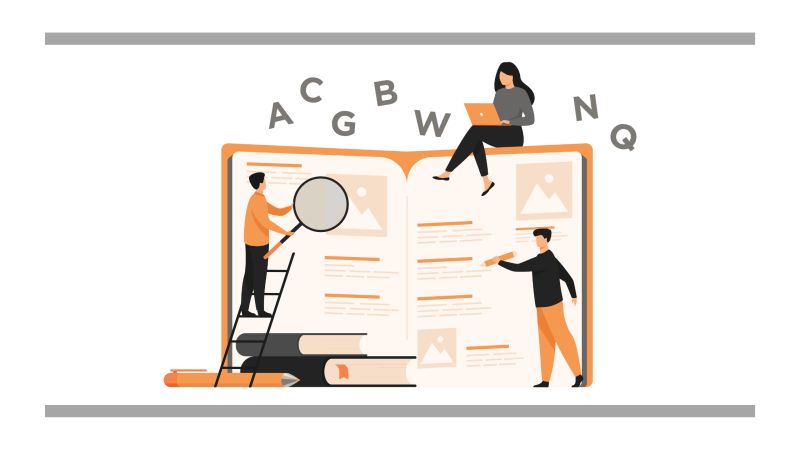
sycophant (n.): someone who excessively (often insincerely) praises powerful or important people to get favors or advantages
Example sentences:
1. The boss likes sycophants because they always agree with him and never say no.
2. She’s not a real friend – she’s just a sycophant who compliments the teacher to get better grades.
3. Famous people often have sycophants around them who pretend to like everything they do.
2. Country Spotlight: Ireland
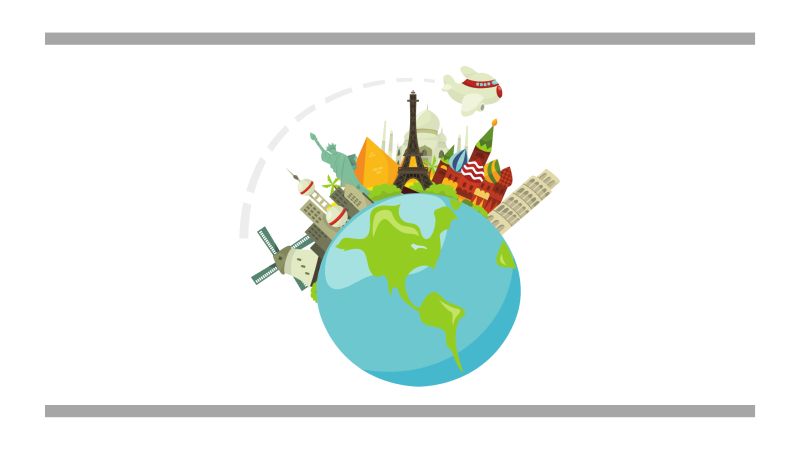
Video
Facts
- Geographical location: Island nation in the North Atlantic Ocean
- Bordering countries: Northern Ireland, which is part of the United Kingdom
- Landscape: Rolling green hills, rugged coastline, and picturesque countryside with traditional cottages
- Climate: Temperate, featuring mild winters and cool summers, with frequent rainfall
- Population: Over 4.9 million people
- Capital city: Dublin
- Other important cities: Cork, Limerick, and Galway
- Language: Irish and English
- Religion: Majority of the population identifies as Roman Catholic
- Currency: Euro
- Cuisine: Hearty, local dishes, including Irish stew and soda bread
- Famous tourist attractions: Ancient ruins, castles, and the Cliffs of Moher
- Interesting historical facts: The Good Friday Agreement of 1998 marked the end of decades-long conflict in Northern Ireland. Progress in peace and reconciliation has been notable since 1998.
Vocabulary Exercise
Read the following sentences. Then choose the definition that is closest in meaning to the bold word.
1. The two neighboring countries have been in conflict for many years.
a) a state of disagreement or opposition between individuals, groups, or countries.
b) a type of food commonly eaten before fighting
c) a feeling of happiness and contentment because the war is over
2. My dream is to live in a cozy cottage by the seaside.
a) a large tree house
b) a small, typically old-fashioned house in a rural or semi-rural area
c) a houseboat that floats on a big river
3. Kale is popular in salads and is packed with nutrients.
a) a type of animal commonly found in the ocean
b) a type of fruit commonly found in tropical regions
c) a type of leafy green vegetable
4. The study of literature helps us understand different cultures and perspectives.
a) written works such as novels, poetry, and plays
b) a type of musical instrument
c) a type of language spoken in ancient times
5. Ireland is an island located off the coast of mainland Europe.
a) a type of community found in certain European countries
b) the main area of Europe that is connected by land, excluding islands
c) a type of transportation used to travel across Europe
6. The statue of the country’s first president is a famous monument in the capital city.
a) a museum that houses famous mummies
b) an unusually large post office with the portrait of a political leader on the roof
c) a structure built to commemorate a person or event
7. The singer’s beautiful melody moved everyone in the audience to tears.
a) a type of song
b) a type of clothing
c) a sequence of musical notes
8. The company is making good progress towards achieving its goals for the year.
a) improvement or advancement towards a goal
b) an inspiring speech to motivate employees
c) a conference where people talk about their goals and dreams
9. It’s a tradition in my family to open presents on Christmas morning.
a) a rule that must not be broken
b) a man with a long white beard
c) a long-established custom or belief
10. The city has a vibrant arts scene with galleries, museums, and theaters.
a) full of flowers that grow near museums
b) full of animals that feed inside galleries and theaters
c) full of energy and enthusiasm
(See answer key at the end of this lesson)
Place Name Exercise
These statements are false. Identify the wrong information and correct the statements.
- The capital city of Ireland is Edinburgh. ________________________
- Other major cities in Ireland include Cardiff and Galway. ________________________
- Ireland is bordered by the Mediterranean Sea. ________________________
- The island is divided into two political entities: the Republic of Ireland and the Republic of Scotland. ________________________
- The population of Ireland is over 49 million people. ________________________
- The currency in Ireland is the Irish pound. ________________________
- The official languages of Ireland are Irish and Gaelic. ________________________
- Tourist attractions in Ireland include the Cliffs of Less, and the Rock of Cashel. ________________________
- The signing of the treaty was a __________ in diplomatic relations between the two nations.
- __________ in the scientific community often contribute groundbreaking discoveries.
- The __________ often expresses its opinions through voting in democratic societies.
- Investing in education helps to __________ for a skilled workforce.
- She __________ that renewable energy could replace traditional sources.
- The protesters aimed to __________ of the oppressive regime.
- The decision to cut funding for education has __________ for future generations.
(See answer key at the end of this lesson)
Are you enjoying this lesson? Support us to keep it free for everyone – click on the “Donate” button …
… or go to this page:
3. This Week in History
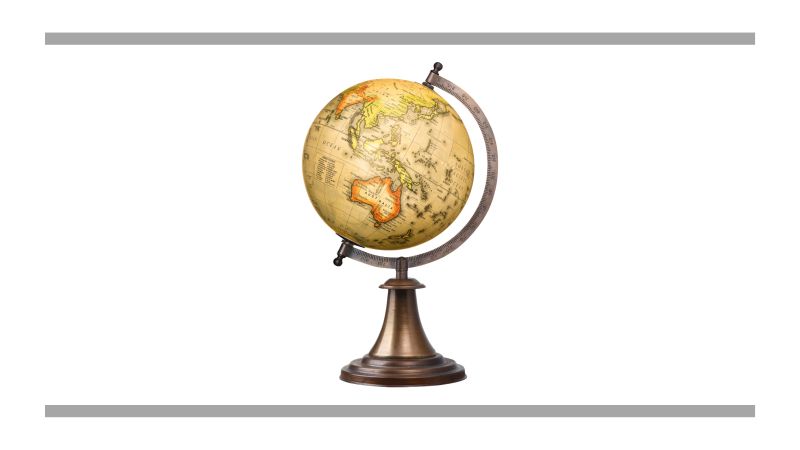
Champagne Invented (1693): French monk Dom Pérignon is traditionally credited with inventing champagne on August 4, 1693, though some say he simply refined sparkling wine techniques. This innovation became a symbol of luxury and celebration.
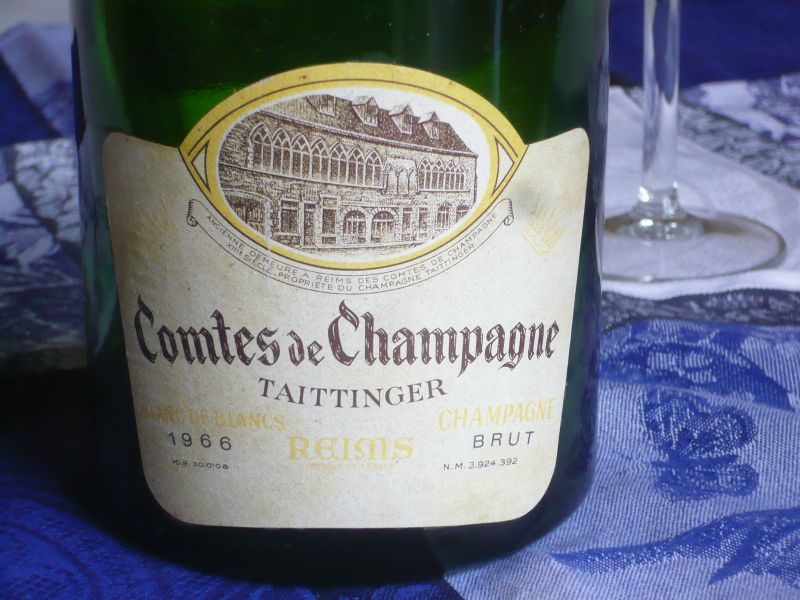
Label on a bottle of Comtes de Champagne 1966
Vocabulary exercise
Read the definitions of words and phrases. Then complete each sentence with one of the bold words or phrases.
a. monk (n.): a man who lives in a religious community, often apart from other people, following strict rules
b. (to) credit (v.): to publicly acknowledge or praise someone for something done
c. champagne (n.): a sparkling wine from the Champagne region of France, often used for celebrations
d. (to) refine (v.): to improve something by making small changes
e. innovation (n.): a new idea, method, or invention
1. She ____________ her teacher for her success in the science fair.
2. The smartphone was a major ____________ in communication technology.
3. The company worked to ____________ its product before the official launch.
4. The ____________ spent his days praying and growing vegetables in the monastery garden.
5. They opened a bottle of ____________ to celebrate their wedding anniversary.
(See answer key at the end of this lesson)
Marilyn Monroe’s Death (1962): On August 5, 1962, iconic actress Marilyn Monroe was found dead in Los Angeles, her passing sparking debates about fame, mental health, and media influence.
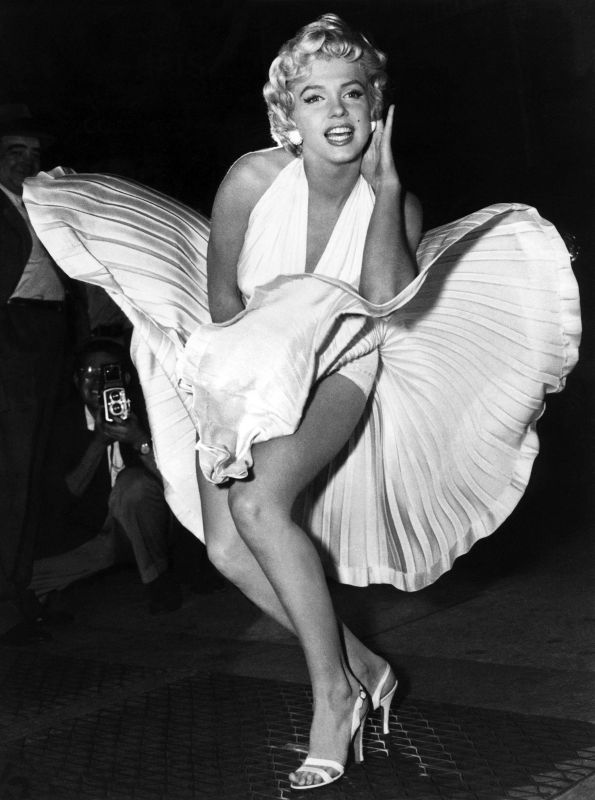
Marilyn Monroe in Seven Year Itch (1954)
Vocabulary exercise
Read the definitions of words and phrases. Then complete each sentence with one of the bold words or phrases.
a. iconic (adj.): very famous and well-known, representing a particular place, time, or style
b. passing (n.): the act of dying or the moment when someone dies
c. mental health (n.): a person’s emotional, psychological, and social well-being
d. media influence (n.): the effect that TV, social media, newspapers, and other media have on people’s thoughts and actions
1. Regular exercise can help improve your ______________.
2. The Eiffel Tower is an ____________ symbol of Paris.
3. ______________ can shape public opinions and trends.
4. The ____________ of his grandfather was a sad moment for the whole family.
(See answer key at the end of this lesson)
World Wide Web Goes Public (1991): On August 6, 1991, Tim Berners-Lee announced information regarding the World Wide Web to the public. This led to a revolution in global communication, information sharing, and technology.
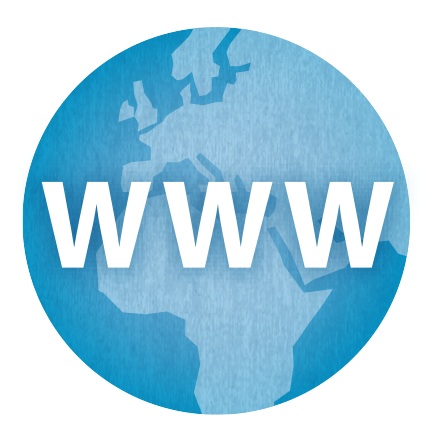
Web Resource Digital Preservation icon
Vocabulary exercise
Read the definitions of words and phrases. Then complete each sentence with one of the bold words or phrases.
a. Tim Berners-Lee (person): the computer scientist who invented the World Wide Web
b. (to) announce (v.): to officially tell people about something
c. World Wide Web (n.): a system of connected documents and resources on the internet
d. the public (n.): all the people in a country or community
e. information sharing (n.): giving or exchanging knowledge or data with others
1. The school will ____________ the winners tomorrow.
2. Online platforms make _________________ faster than ever.
3. The ____________ allows people to share and find information easily.
4. _______________ invented the World Wide Web in 1989.
5. The museum is now open to ____________.
(See answer key at the end of this lesson)
Purple Heart Established (1782): On August 7, 1782, General George Washington created the Purple Heart, a U.S. military decoration for soldiers wounded or killed in action, symbolizing bravery.
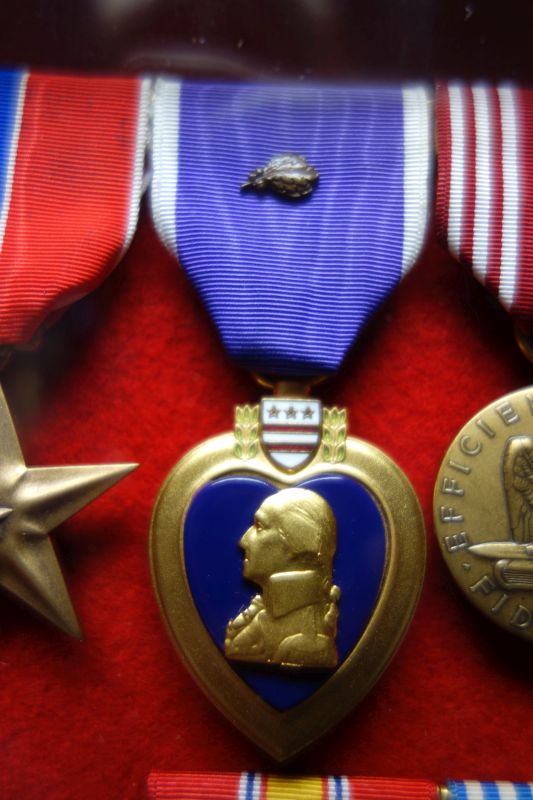
Purple Heart in the Fort Devens Museum, Massachusetts, USA
Vocabulary exercise
Read the definitions of words and phrases. Then complete each sentence with one of the bold words or phrases.
a. George Washington (person): the first president of the United States (1789–1797) and a leader in the American Revolution
b. military decoration (n.): a medal given to soldiers for bravery or service
c. wounded (adj.): injured, especially in war or an accident
d. (to be) killed in action (phr.): died while fighting in a war
e. bravery (n.): the quality of showing courage in dangerous situations
1. Several soldiers were ____________ in the battle.
2. _________________ is often called the “Father of His Country.”
3. Her ____________ saved many lives during the flood.
4. He received a _________________ for his acts of courage during the war.
5. The soldier was _______________ during the final days of the conflict.
(See answer key at the end of this lesson)
Great Train Robbery (1963): On August 8, 1963, a gang robbed a Royal Mail train in England, stealing £2.6 million (more than £69 million in 2025) in the largest heist of its time, captivating public attention.
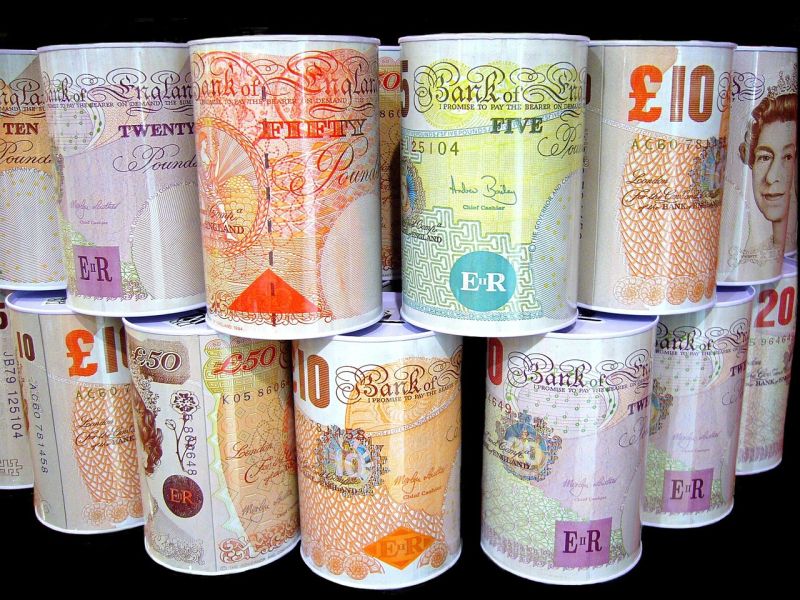
British pound sterling cash
Vocabulary exercise
Read the definitions of words and phrases. Then complete each sentence with one of the bold words or phrases.
a. gang (n.): a group of people, often involved in crime
b. heist (n.): a planned theft, often from a bank or store
c. (to) captivate (v.): to strongly hold someone’s interest or attention
d. public attention (n.): the interest and focus of many people
1. The ____________ planned a robbery together.
2. The protest attracted a lot of ____________.
3. The singer’s voice can ____________ any audience.
4. The film tells the story of a famous diamond ____________.
(See answer key at the end of this lesson)
Jesse Owens Wins Fourth Olympic Gold (1936): On August 9, 1936, African-American athlete Jesse Owens won his fourth gold medal at the Berlin Olympics, defying Nazi racial ideology with his triumphs.
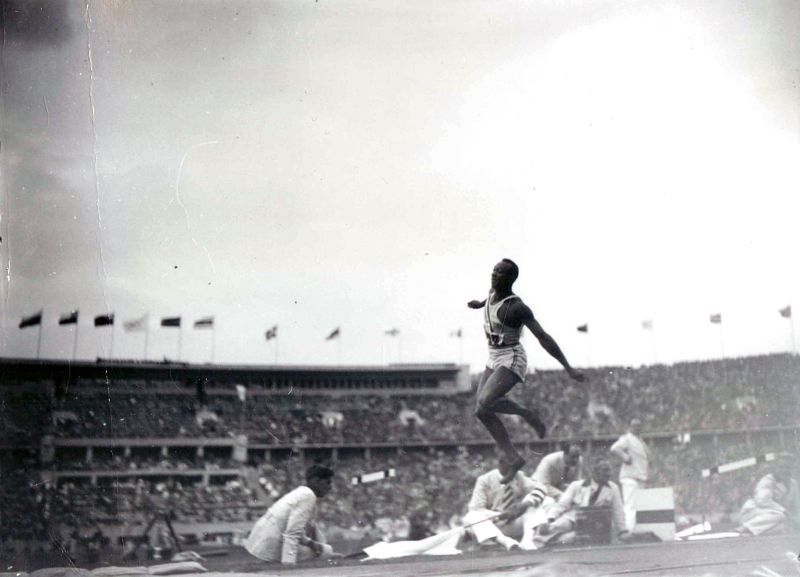
Jesse Owens at the 1936 Olympics in Berlin, Germany
Vocabulary exercise
Read the definitions of words and phrases. Then complete each sentence with one of the bold words or phrases.
a. African-American (adj.): describing a person in the United States who is of Black African descent and has ancestral ties to Africa
b. Berlin Olympics (event): the Olympic Games held in Berlin, Germany, in 1936
c. (to) defy (v.): to openly resist or go against something
d. Nazi (adj.): describing a member of Adolf Hitler’s political party in Germany (1933-1945)
e. racial ideology (adj.+n.): a belief system based on ideas about race
f. triumph (n.): a great victory or success
1. The Nazi ________________ promoted discrimination and hatred.
2. Martin Luther King Jr. was a famous ________________ civil rights leader.
3. The ____________ government controlled Germany during World War II.
4. His team’s win was a ____________ after years of hard work.
5. She chose to ____________ the unfair rules.
6. The _______________ were used by Nazi Germany for propaganda.
(See answer key at the end of this lesson)
Louvre Museum Opens (1793): On August 10, 1793, the Louvre Museum opened in Paris, France, transforming a royal palace into a public institution and showcasing art and culture.
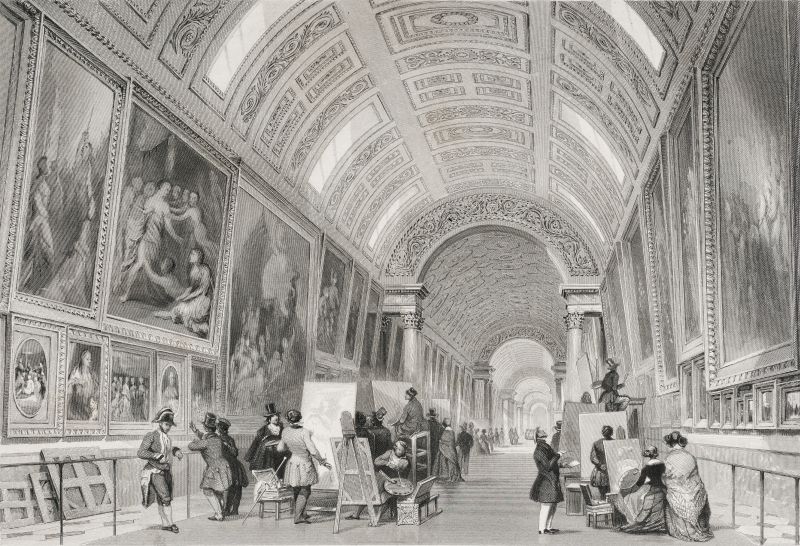
The Great Gallery at the Louvre (painting by Thomas Allom, 1844)
Vocabulary exercise
Read the definitions of words and phrases. Then complete each sentence with one of the bold words or phrases.
a. Louvre Museum (place): a world-famous art museum in Paris, France
b. royal palace (n.): a large home for a king, queen, or royal family
c. public institution (n.): an organization that serves the public, such as a school, library, or museum
d. (to) showcase (v.): to display something in a way that attracts attention
1. The city’s ______________ is open to visitors.
2. The exhibition will ____________ local artists’ work.
3. The Mona Lisa is displayed in the _________________.
4. The library is a _________________ funded by the government.
(See answer key at the end of this lesson)
4. History with Tenses and Conditionals
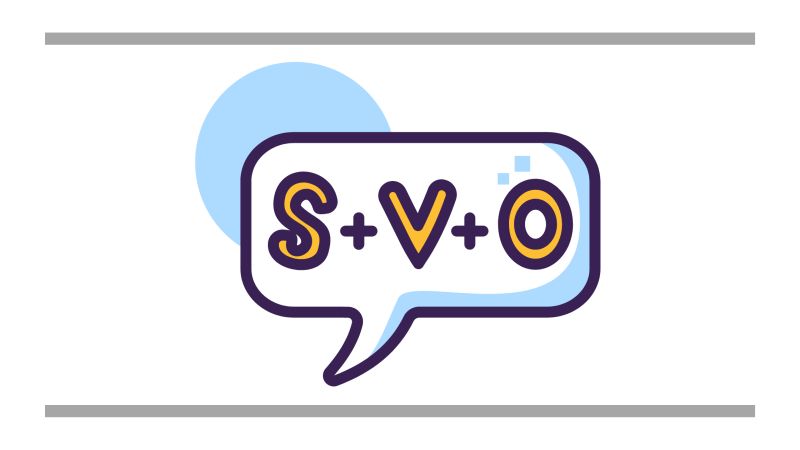
Historical event: On August 6, 1991, Tim Berners-Lee publicly announced information regarding the World Wide Web to the public. This led to a revolution in global communication, information sharing, and technology.
PRESENT TENSES
Complete the sentences with the correct form of the verbs
Simple Present Tense: Examples: a) He walks to the shop every day. b) He lives near the shop. c) One plus one equals two.
The World Wide Web _________ (connect) people all over the globe.
Present Continuous Tense: Example: He is walking to the shop.
Millions of people _______________ (use) the Web to share information.
Present Perfect Tense: Examples: a) He has walked to the shop many times. b) He has lived near the shop for ten years.
The Web __________________ (transform) how we communicate and learn.
Present Perfect Continuous Tense: Examples: a) He has been walking to the shop for more than an hour. b) He has been going to the shop a lot lately.
People ____________________ (build) websites for more than 30 years.
(See answer key at the end of this lesson)
PAST TENSES
Complete the sentences with the correct form of the verbs
Simple Past Tense: Example: He walked to the shop yesterday afternoon.
Tim Berners-Lee _______________ (announce) the World Wide Web on August 6, 1991.
Past Continuous Tense: Example: He was walking to the shop when I saw him.
When Berners-Lee made his announcement, programmers _______________ (work) on early websites.
Past Perfect Tense: Example: He had already walked to the shop when I saw him.
Before 1991, most people _______________ (never, hear) of the internet.
Past Perfect Continuous Tense: Example: He had been walking to the shop for over an hour when I saw him.
Berners-Lee ____________________ (develop) the Web for several years before it went public.
(See answer key at the end of this lesson)
FUTURE TENSES
Complete the sentences with the correct form of the verbs
Simple Future Tense: Example: He will walk to the shop this afternoon.
The Web _______________ (continue) to shape our lives in the coming decades.
Future Continuous Tense: Example: He will be walking to the shop by the time I go to work.
Decades from now, people ____________________ (still, browse) interconnected networks.
Future Perfect Tense: Examples: a) By the time I see him, he will already have walked to the shop. b) By this afternoon, he will already have walked to the shop.
By 2030, the Web ____________________ (connect) billions more people.
Future Perfect Continuous Tense: Example: He will have been walking to the shop for an hour by the time you see him.
By the end of this decade, humans ____________________ (rely) on the Web for more than 40 years.
(See answer key at the end of this lesson)
CONDITIONALS
Complete the sentences with the correct form of the verbs
First conditional: Example: If it rains, I will stay at home. (Real future possibility)
If internet access __________ (become) universal, education _______________ (improve) worldwide.
Second conditional: Example: If I won the lottery, I would quit my job. (Imagined present scenario)
If the Web _______________ (not exist), our lives _______________ (be) completely different.
Third conditional: Example: If I had studied harder, I would have passed the exam. (Unreal past situation)
If Berners-Lee _______________ (not share) his idea in 1991, the digital age _______________ (start) much later.
(See answer key at the end of this lesson)
5. Quote of the Week
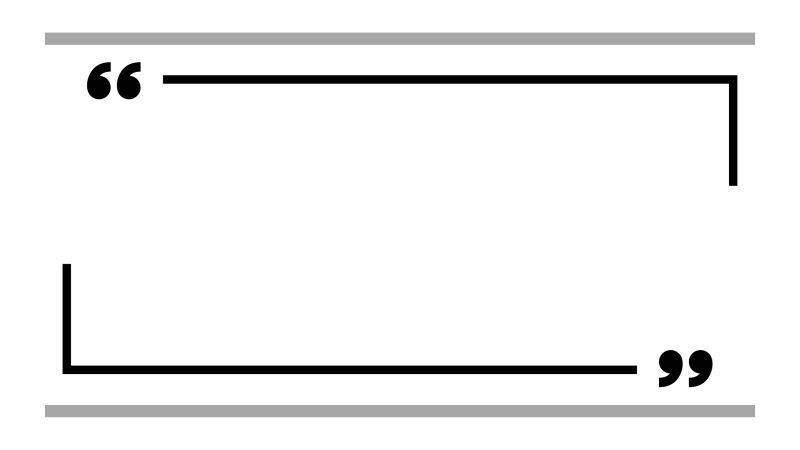
“Great things are done by a series of small things brought together.” ~ Vincent Van Gogh
6. Idiom of the Week
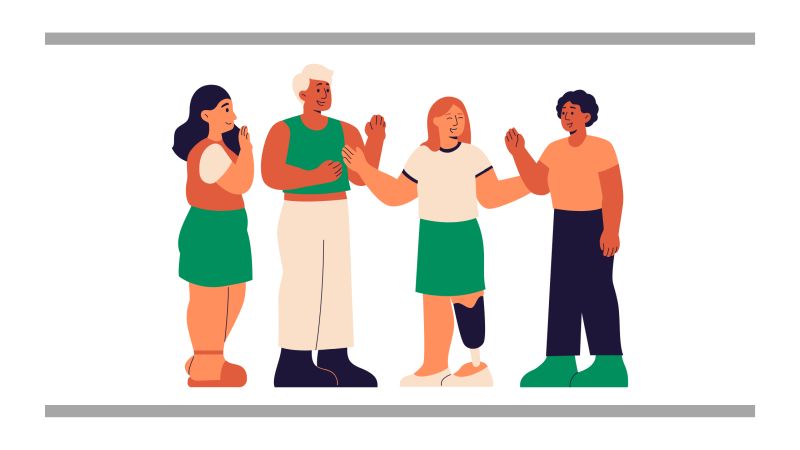
Take it with a grain of salt: To be skeptical or not fully believe something.
Example: “He tends to exaggerate, so take what he says with a grain of salt.”
Discussion: Think of some news or gossip you heard that you took with a grain of salt – something you were skeptical about or did not fully believe.
7. Answer Keys
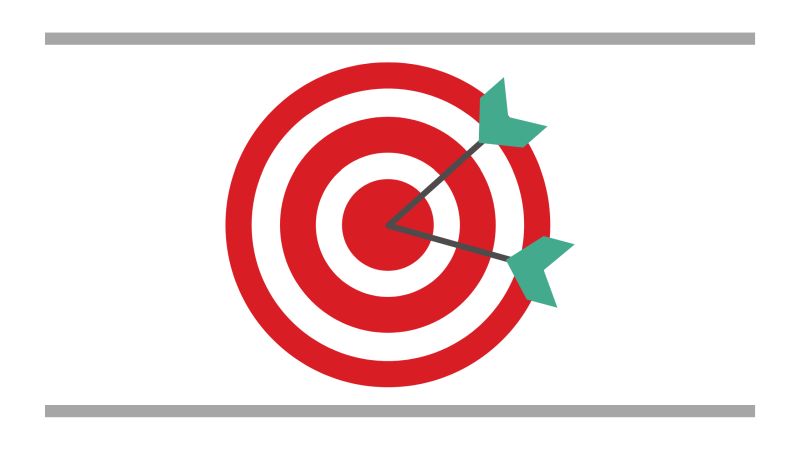
2. Country Spotlight: Ireland
Read the following sentences. Then choose the definition that is closest in meaning to the bold word.
1. The two neighboring countries have been in conflict for many years.
a) a state of disagreement or opposition between individuals, groups, or countries.
b) a type of food commonly eaten before fighting
c) a feeling of happiness and contentment because the war is over
2. My dream is to live in a cozy cottage by the seaside.
a) a large tree house
b) a small, typically old-fashioned house in a rural or semi-rural area
c) a houseboat that floats on a big river
3. Kale is popular in salads and is packed with nutrients.
a) a type of animal commonly found in the ocean
b) a type of fruit commonly found in tropical regions
c) a type of leafy green vegetable
4. The study of literature helps us understand different cultures and perspectives.
a) written works such as novels, poetry, and plays
b) a type of musical instrument
c) a type of language spoken in ancient times
5. Ireland is an island located off the coast of mainland Europe.
a) a type of community found in certain European countries
b) the main area of Europe that is connected by land, excluding islands
c) a type of transportation used to travel across Europe
6. The statue of the country’s first president is a famous monument in the capital city.
a) a museum that houses famous mummies
b) an unusually large post office with the portrait of a political leader on the roof
c) a structure built to commemorate a person or event
7. The singer’s beautiful melody moved everyone in the audience to tears.
a) a type of song
b) a type of clothing
c) a sequence of musical notes
8. The company is making good progress towards achieving its goals for the year.
a) improvement or advancement towards a goal
b) an inspiring speech to motivate employees
c) a conference where people talk about their goals and dreams
9. It’s a tradition in my family to open presents on Christmas morning.
a) a rule that must not be broken
b) a man with a long white beard
c) a long-established custom or belief
10. The city has a vibrant arts scene with galleries, museums, and theaters.
a) full of flowers that grow near museums
b) full of animals that feed inside galleries and theaters
c) full of energy and enthusiasm
These statements are false. Identify the wrong information and correct the statements.
- The capital city of Ireland is
EdinburghDublin. - Other major cities in Ireland include
CardiffCork / Limerick and Galway. - Ireland is bordered by the
Mediterranean SeaNorth Atlantic Ocean. - The island is divided into two political entities: the Republic of Ireland and
the Republic of ScotlandNorthern Ireland. - The population of Ireland is over
49 million4.9 million people. - The currency in Ireland is the
Irish poundeuro. - The official languages of Ireland are Irish and
GaelicEnglish. - Tourist attractions in Ireland include the Cliffs of
LessMoher, and the Rock of Cashel.
3. This Week in History
Historical event #1: Champagne Invented (1693)
Read the definitions of words and phrases. Then complete each sentence with one of the bold words or phrases.
a. monk (n.): a man who lives in a religious community, often apart from other people, following strict rules
b. (to) credit (v.): to publicly acknowledge or praise someone for something done
c. champagne (n.): a sparkling wine from the Champagne region of France, often used for celebrations
d. (to) refine (v.): to improve something by making small changes
e. innovation (n.): a new idea, method, or invention
1. She credited her teacher for her success in the science fair.
2. The smartphone was a major innovation in communication technology.
3. The company worked to refine its product before the official launch.
4. The monk spent his days praying and growing vegetables in the monastery garden.
5. They opened a bottle of champagne to celebrate their wedding anniversary.
Historical event #2: Marilyn Monroe’s Death (1962)
Read the definitions of words and phrases. Then complete each sentence with one of the bold words or phrases.
a. iconic (adj.): very famous and well-known, representing a particular place, time, or style
b. passing (n.): the act of dying or the moment when someone dies
c. mental health (n.): a person’s emotional, psychological, and social well-being
d. media influence (n.): the effect that TV, social media, newspapers, and other media have on people’s thoughts and actions
1. Regular exercise can help improve your mental health.
2. The Eiffel Tower is an iconic symbol of Paris.
3. Media influence can shape public opinions and trends.
4. The passing of his grandfather was a sad moment for the whole family.
Historical event #3: World Wide Web Goes Public (1991)
Read the definitions of words and phrases. Then complete each sentence with one of the bold words or phrases.
a. Tim Berners-Lee (person): the computer scientist who invented the World Wide Web
b. (to) announce (v.): to officially tell people about something
c. World Wide Web (n.): a system of connected documents and resources on the internet
d. the public (n.): all the people in a country or community
e. information sharing (n.): giving or exchanging knowledge or data with others
1. The school will announce the winners tomorrow.
2. Online platforms make information sharing faster than ever.
3. The World Wide Web allows people to share and find information easily.
4. Tim Berners-Lee invented the World Wide Web in 1989.
5. The museum is now open to the public.
Historical event #4: Purple Heart Established (1782)
Read the definitions of words and phrases. Then complete each sentence with one of the bold words or phrases.
a. George Washington (person): the first president of the United States (1789–1797) and a leader in the American Revolution
b. military decoration (n.): a medal given to soldiers for bravery or service
c. wounded (adj.): injured, especially in war or an accident
d. (to be) killed in action (phr.): died while fighting in a war
e. bravery (n.): the quality of showing courage in dangerous situations
1. Several soldiers were wounded in the battle.
2. George Washington is often called the “Father of His Country.”
3. Her bravery saved many lives during the flood.
4. He received a military decoration for his acts of courage during the war.
5. The soldier was killed in action during the final days of the conflict.
Historical event #5: Great Train Robbery (1963)
Read the definitions of words and phrases. Then complete each sentence with one of the bold words or phrases.
a. gang (n.): a group of people, often involved in crime
b. heist (n.): a planned theft, often from a bank or store
c. (to) captivate (v.): to strongly hold someone’s interest or attention
d. public attention (n.): the interest and focus of many people
1. The gang planned a robbery together.
2. The protest attracted a lot of public attention.
3. The singer’s voice can captivate any audience.
4. The film tells the story of a famous diamond heist.
Historical event #6: Jesse Owens Wins Fourth Olympic Gold (1936)
Read the definitions of words and phrases. Then complete each sentence with one of the bold words or phrases.
a. African-American (adj.): describing a person in the United States who is of Black African descent and has ancestral ties to Africa
b. Berlin Olympics (event): the Olympic Games held in Berlin, Germany, in 1936
c. (to) defy (v.): to openly resist or go against something
d. Nazi (adj.): describing a member of Adolf Hitler’s political party in Germany (1933-1945)
e. racial ideology (adj.+n.): a belief system based on ideas about race
f. triumph (n.): a great victory or success
1. The Nazi racial ideology promoted discrimination and hatred.
2. Martin Luther King Jr. was a famous African-American civil rights leader.
3. The Nazi government controlled Germany during World War II.
4. His team’s win was a triumph after years of hard work.
5. She chose to defy the unfair rules.
6. The Berlin Olympics were used by Nazi Germany for propaganda.
Historical event #7: Louvre Museum Opens (1793)
a. Louvre Museum (place): a world-famous art museum in Paris, France
b. royal palace (n.): a large home for a king, queen, or royal family
c. public institution (n.): an organization that serves the public, such as a school, library, or museum
d. (to) showcase (v.): to display something in a way that attracts attention
1. The city’s royal palace is open to visitors.
2. The exhibition will showcase local artists’ work.
3. The Mona Lisa is displayed in the Louvre Museum.
4. The library is a public institution funded by the government.
4. History with Tenses and Conditionals
PRESENT TENSES
Simple Present Tense: The World Wide Web connects people all over the globe.
Present Continuous Tense: Millions of people are using the Web to share information.
Present Perfect Tense: The Web has transformed how we communicate and learn.
Present Perfect Continuous Tense: People have been building websites for more than 30 years.
PAST TENSES
Simple Past Tense: Tim Berners-Lee announced the World Wide Web on August 6, 1991.
Past Continuous Tense: When Berners-Lee made his announcement, programmers were working on early websites.
Past Perfect Tense: Before 1991, most people had never heard of the internet.
Past Perfect Continuous Tense: Berners-Lee had been developing the Web for several years before it went public.
FUTURE TENSES
Simple Future Tense: The Web will continue to shape our lives in the coming decades.
Future Continuous Tense: Decades from now, people will still be browsing interconnected networks.
Future Perfect Tense: By 2030, the Web will have connected billions more people.
Future Perfect Continuous Tense: By the end of this decade, humans will have been relying on the Web for more than 40 years.
CONDITIONALS
First conditional: If internet access becomes universal, education will improve worldwide.
Second conditional: If the Web did not exist, our lives would be completely different.
Third conditional: If Berners-Lee had not shared his idea in 1991, the digital age would have started much later.
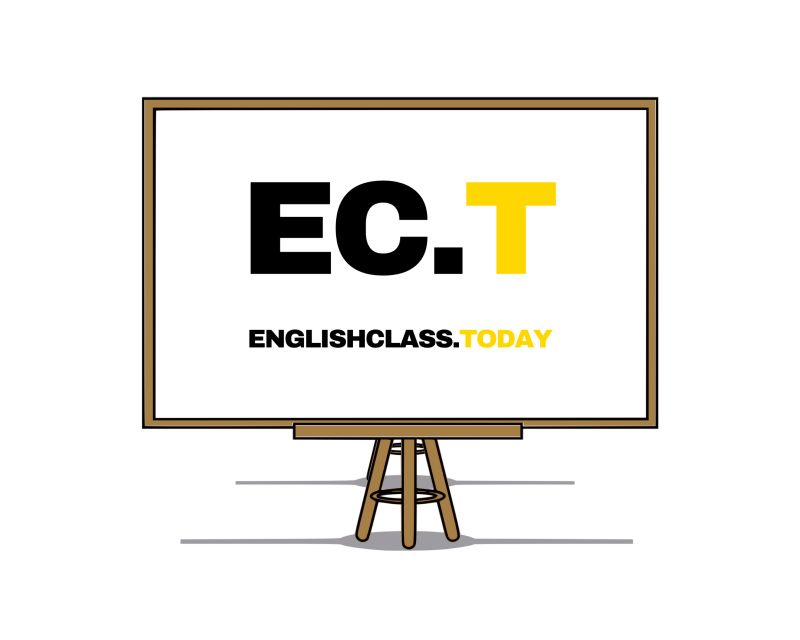
Did you enjoy this lesson? Support us to keep it free for everyone – click on the “Donate” button …
… or go to this page:
 Donate
Donate